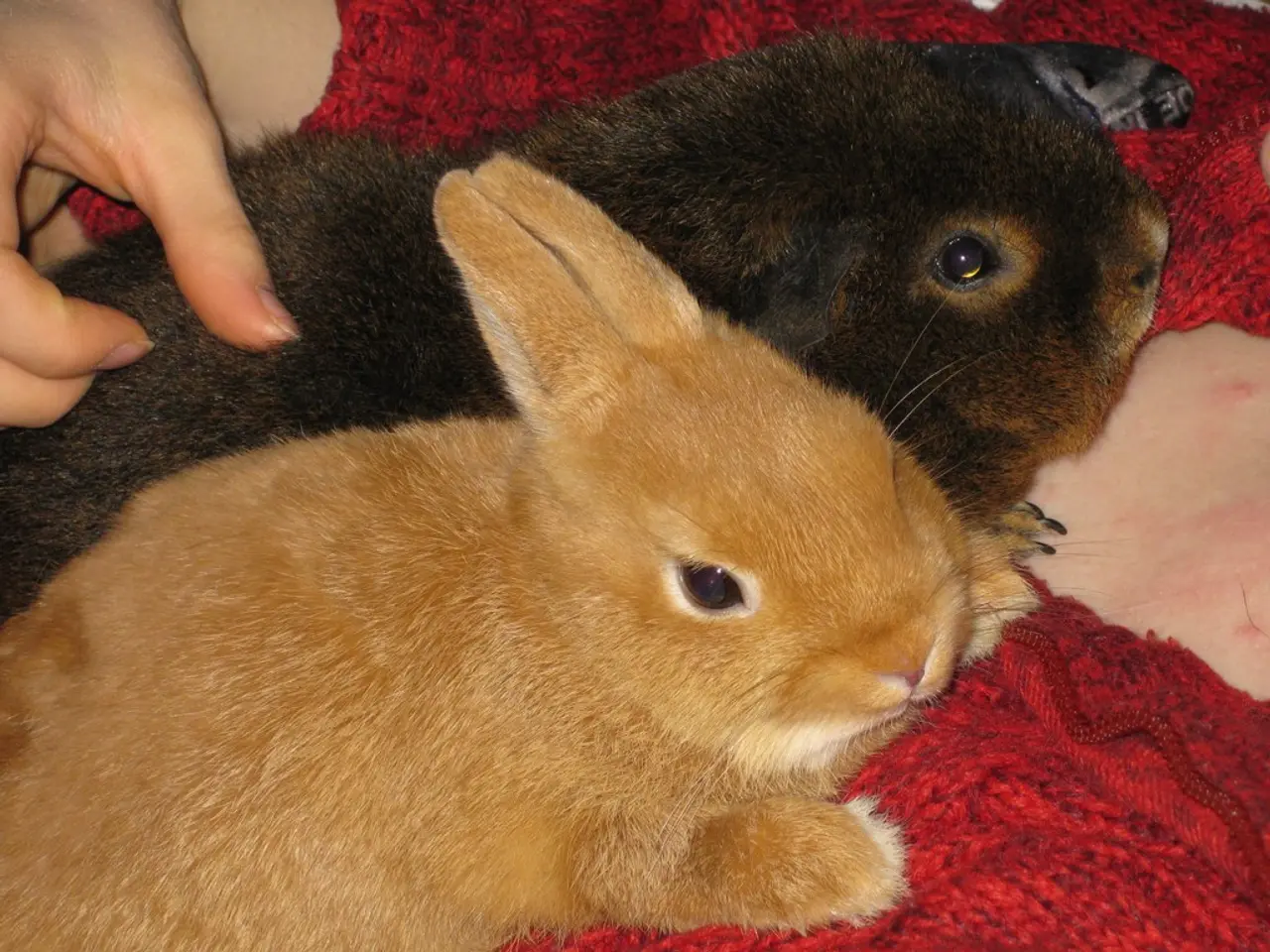Rabbits do not typically hibernate, contrary to popular belief.
Caring for Rabbits in Winter: A Comprehensive Guide
Rabbits, beloved pets known for their soft fur and playful nature, require special care during the winter months. Here's a guide to help ensure your rabbit stays warm, healthy, and happy throughout the cold season.
Firstly, it's essential to understand that the best way to determine if a rabbit is cold is by feeling their skin. A rabbit's skin should feel warm to the touch, not cold or clammy. Contrary to popular belief, relying on a rabbit's ear temperature is not a reliable indicator of their body temperature.
When it comes to accommodating rabbits during winter, space is crucial. Rabbits need lots of room to run around and explore. Young, elderly, sick rabbits, or those recovering from surgery may need to spend winter indoors or in a secure shed/outhouse, with at least 10ft x 6.5ft (3m x 2m) of space.
Rabbits should have a companion during winter, as they will snuggle up together to keep each other warm. During winter, rabbits must stay inside until the spring when the outside environmental temperature increases.
Providing a quality indoor rabbit hutch is important when bringing rabbits inside during winter. The hutch should offer shelter from the wind and rain to avoid damp and draughty conditions. Rabbits grow a thick winter coat to help keep them insulated during the colder months.
When it comes to diet, fresh, good-quality hay should make up 85% of a rabbit's diet. The pellet component of a rabbit's diet should only make up 5% of their overall daily food allowance. Offering sufficient high-quality food, such as hay and fresh leafy vegetables, helps maintain body heat.
It's also crucial to provide access to unfrozen, fresh water at all times. Heat disc pads under water bowls and bottle covers/socks can help prevent water from freezing.
Providing rabbits with toys, tunnels, boxes, hides, and games can help keep them entertained and moving around. Rabbits are not nocturnal; they have periods of activity during the day and night but are most active at dawn and dusk.
Wild rabbits can adapt to winter conditions to some extent, but domestic rabbits do not have the same adaptation mechanisms. Therefore, they require additional care in winter, such as providing a warm, dry shelter, adequate bedding materials, and minimizing stress and exposure to drafts or damp conditions.
For more information on rabbit winter care, check out the guide on rabbit winter care. If you're concerned about a rabbit's sleep position, contact a vet immediately.
Remember, wild rabbits typically do not require human intervention to survive cold weather, but those found weak, cold, or not well-fed likely need specialized care from licensed rehabilitators. In summary, wild rabbits adapt naturally, but domestic rabbits depend on humans to maintain suitable environments and nutrition to withstand winter cold.
[1] Source: Wild Rabbit Adaptation to Winter Conditions [2] Source: Wild Rabbit Rehabilitation and Care
Read also:
- Impact of Alcohol Consumption During Pregnancy: Consequences and Further Details
- The cause behind increased urination after alcohol consumption is explained here.
- Toe joint arthritis: Signs, triggers, and further details
- West Nile Virus found in Kentucky for the first time; residents advised to take protective measures







